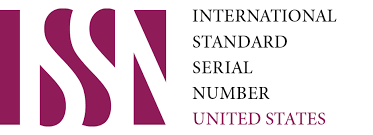The future implications of communicative discourse in fabrics and fashion designs
Keywords:
Semantics, future, communication speechesAbstract
The means of communication, through its discourse, contributed to linking individuals and groups to each other in different parts of the world, and was able to break the isolation of human society, The means of communication have also overcome the limitations of time and distance, It has been able, appropriately, to break through spatial boundaries, overcome time constraints, stimulate group interaction and participation, and contribute to the promotion of cultural diversity values, Communication technology has added new global means to many peoples and nations, just as it has placed new global tools in the hands of its adversaries, Where it contributed greatly to the knowledge of the cultures of peoples on the external level, In addition, means of communication have enabled support for cultural diversity efforts at the internal level, and have significantly increased opportunities to diversify sources of knowledge and information, But at the same time, communication technology has created a gap in the reality of relations between the West and the East, and between developed countries that possess that technology and developing countries that lack it, The current era has also witnessed a high speed and great development in the communication and information media technology industry, which reflected positively on the form, content, characteristics, spread, and impact capabilities of new media, The means of communication represent a fundamental window through which the human being of this age overlooks the world, through which he sees his culture, civilization, and progress, It guarantees freedom of expression for various forms of artistic, cultural, social, religious and philosophical practice and thus guarantees the right to cultural diversity.
References
Abu Isbaa, Saleh, (1987), Communication Processes from Self-Contact to Mass Communication, Journal of the College of Arts, UAE University.
Abu Zid, Farouk, (1991), The collapse of the international media system from the second house to the one-polar hemn, today's news presses, Cairo.
Jaber, Samia, (b. C), mass communication and modern society.
Al Hammadi, Ali, (2000), Don’t Be a Ghost, Dar Ibn Hazm, Beirut.
Hamdan, Mohamed Ziad, (1986) Educational Methods and Technology Principles and Applications in Learning and Teaching, Modern Education, Amman
Dalal, State, (2007), Educational Technology and E-Learning. First edition Dar Wael, Amman.
Al-Zaloul, Rafi Naseer and Al-Zagul Imad Abdul Rahim, (2009), Cognitive Psychology, 1st Edition, Dar Al Shorouk, Amman.
Sahraoui, Ibrahim, (1999), Analysis of Literary Discourse, 1st Edition, Dar Al Afaq, Algeria.
Al-Obeidi, Jabbar Odeh and Falah Kazim, (1989), Mass Communication, University of Baghdad, College of Fine Arts, Higher Education Press, Baghdad.
Asfour, Jaber, (1997), Horizons Al-Asr, 1st Floor, Dar Al-Huda for Culture and Publishing, Surya.
Imad, Hassan, (1993), Modern Communication Technology in the Information Age, Lebanese Egyptian House, Beirut.
Al Ayadi, Nasr al-Din, (2011), Mass Communication and Culture, Rule and Exception, Department of Culture and Information, Sharjah.
Mangono, Domenid, (2005), Terminology of Fatitures for Discourse, Tir, Mohamed Yahiaten, 1st Edition, Al-Farqar Publications, Algeria.
Milad, Abdel Majid, (2009), Cultural Diversity in the Information Technology Era, Dar Quba, Cairo.
Al-Najjar, Hussein Fawzi, (2009), Contemporary Media, Dar Al Maarif, Cairo
Al-Kanani, Majid Nafie, (1988), Building an Educational System to Develop Sensory Perceptuality through Perspective Material, Unpublished PhD Thesis, University of Baghdad, College of Fine Arts, Baghdad.
Abdul Majeed, Layla, (b. C), Communication and Media Policies and Their Impact on Culture, Education and Thought, World of Thought Magazine, Volume 23, Kuwait.
Al-Bardi, Mohamed, (2004), the establishment of discourse in the modern Arabic novel, University Publishing Center, Tunisia.
Rabert, Barden, (1995), and Hacker, Michael, communication Technology Inc.
Downloads
Published
Issue
Section
License

This work is licensed under a Creative Commons Attribution 4.0 International License.
User Rights
Under the Creative Commons Attribution-NonCommercial 4.0 International (CC-BY-NC), the author (s) and users are free to share (copy, distribute and transmit the contribution).
Rights of Authors
Authors retain the following rights:
1. Copyright and other proprietary rights relating to the article, such as patent rights,
2. the right to use the substance of the article in future works, including lectures and books,
3. the right to reproduce the article for own purposes, provided the copies are not offered for sale,
4. the right to self-archive the article.












